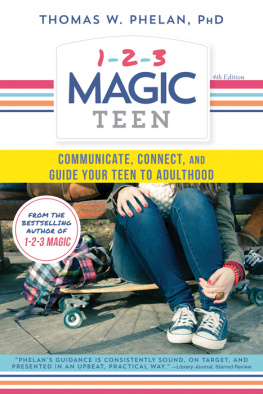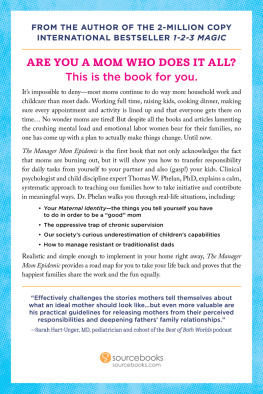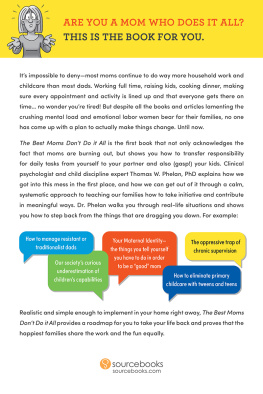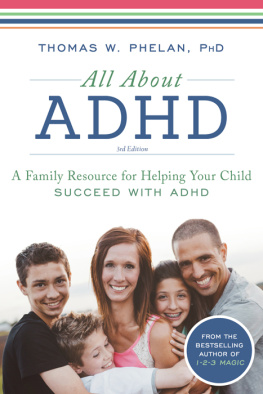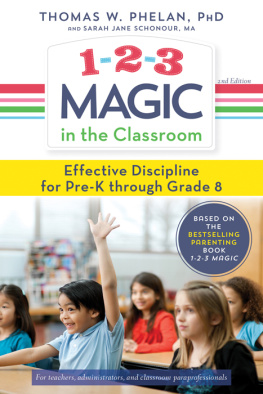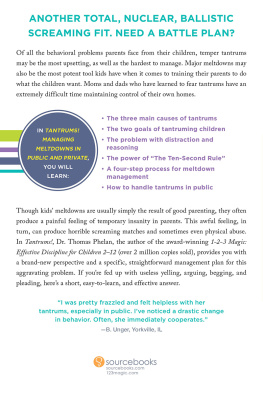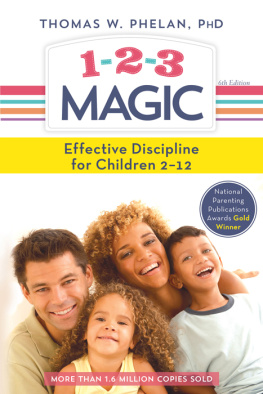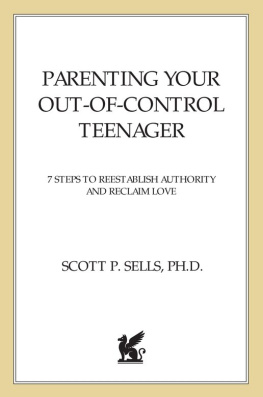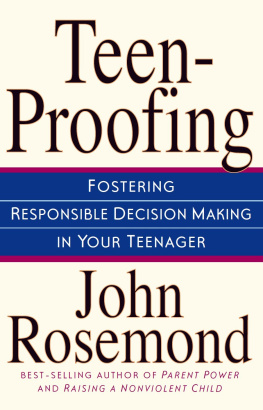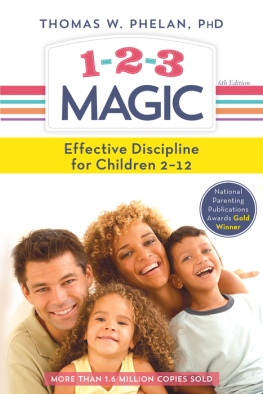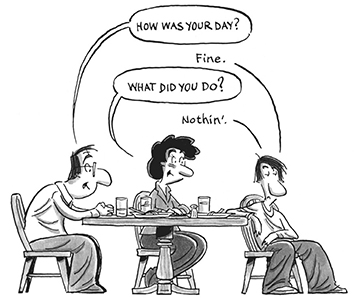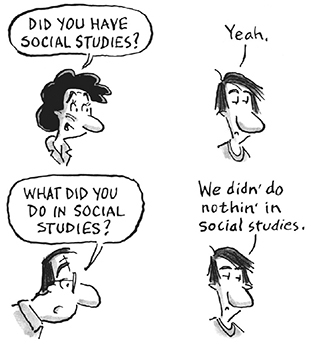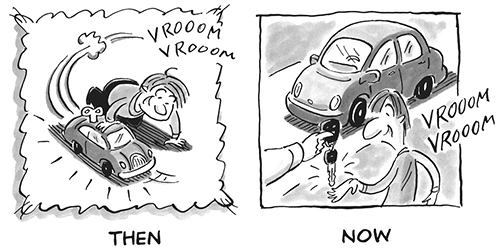Copyright 2016 by ParentMagic, Inc.
Cover and internal design 2016 by Sourcebooks, Inc.
Cover design by Erin Seaward-Hiatt
Cover images asife/123RF
Sourcebooks and the colophon are registered trademarks of Sourcebooks, Inc.
All rights reserved. No part of this book may be reproduced in any form or by any electronic or mechanical means including information storage and retrieval systemsexcept in the case of brief quotations embodied in critical articles or reviewswithout permission in writing from its publisher, Sourcebooks, Inc.
This publication is designed to provide accurate and authoritative information in regard to the subject matter covered. It is sold with the understanding that the publisher is not engaged in rendering legal, accounting, or other professional service. If legal advice or other expert assistance is required, the services of a competent professional person should be sought. From a Declaration of Principles Jointly Adopted by a Committee of the American Bar Association and a Committee of Publishers and Associations
This book is not intended as a substitute for medical advice from a qualified physician. The intent of this book is to provide accurate general information in regard to the subject matter covered. If medical advice or other expert help is needed, the services of an appropriate medical professional should be sought.
Originally published as Surviving Your Adolescents in 2012 by ParentMagic, Inc.
Published by Sourcebooks, Inc.
P.O. Box 4410, Naperville, Illinois 60567-4410
(630) 961-3900
Fax: (630) 961-2168
www.sourcebooks.com
Library of Congress Cataloging-in-Publication data is on file with the publisher.
CONTENTS
PREFACE
YES, ITS FINALLY HAPPENED. In what seemed like the blink of an eye, your cute little preschoolers have turned into teenagers! Parenting is suddenly a whole new ball game. Butyoure wonderingwhat kind of ball game is it?
Now, looking back, raising your two- to twelve-year olds seems no more difficult than going out in the car for ice cream. The prospect of raising teenagers, on the other hand, feels like getting on the creaky Mayflower for a voyage across the Atlantic.
When your kids were little, you had three fairly straightforward tasks: managing obnoxious behavior, encouraging good behavior, and bonding or building relationships. So whats your job description now? Your adolescents seem less accepting of you intruding into their affairs. They also seem less interested in you! You feel youre being replaced by their friends, their tech devices, and their own mysterious internal ruminations.
Believe it or not, you dont have to worry. As well explain in 1-2-3 Magic Teen , this is the way its supposed to be. Your kids are pulling away from you, as they should be, and a new part of your job description is mastering the new art of letting go. After all, ten or fifteen years from now, you dont want your child still living at homenor would they want to be there.
With 1-2-3 Magic and the younger kids, you actively managed difficult behavior, positive behavior, and relationship building. With 1-2-3 Magic Teen , youll still need house rules, a knowledge of your possible intervention roles, and (like 1-2-3 Magic ) an awareness of when its time to stop talking. But today, as the parent of a teen, your biggest jobs are going to be understanding contemporary adolescence, managing your reaction to your teen pulling away from you, and staying in touch as best you can. Teens do not always detach gracefully, and it is absolutely essential that you do not take personally their sometimes awkward maneuvers to gain independence and establish their identities.
So, welcome to your new world. We hope that 1-2-3 Magic Teen , like 1-2-3 Magic , will help you navigate the temporarily choppy waters and arrive safely in port.
INTRODUCTION
The Snub
IF YOU HAVE A teenager, youve probably had an encounter like the one in the cartoon above at one time or other. After a long workday for youand long school day for your sixteen-year-old sonits dinnertime, and youre trying to start a pleasant conversation.
Dead endso far. But youre not about to give up that easily.
Thats ityou cant seem to get anything else out of your teen. This same situation repeats itself every night. Meet the Snuba grumpy, uncommunicative reaction from your child, which tends to appear around or before your son or daughter turns thirteen.
When you ask your nine-year-old daughter about her day, on the other hand, you get the Complete Evening News. Extended and enthusiastic self-revelation is no problem for her.
Your sixteen-year-old son is different. Hes quiet, even sullen-looking sometimes. What am I doing wrong? you wonder. All Im trying to do is have a little talk. Is that too much to ask? Whats wrong with this kid?
Parenting: Then and Now
Some of you have come to 1-2-3 Magic Teen by way of the book 1-2-3 Magic: Effective Discipline for Children 212 . From the time your kids were toddlers through their tween years (nine to twelve), you used the relatively simple and straightforward strategies to maintain reasonable control over the childrens behavior, strengthen your relationships with them, and be better able to enjoy their company.
Now that you have a teenager or two, however, you notice things are changing. Parenting during the 1-2-3 Magic years (then), when your children were two to twelve, had a number of important differences from parenting during the teen years (now), when the kids are thirteen to nineteen (or even way beyond). Lets look at these differences:
The Kids
THEN: The kids were cute and engaging.
NOW: The children are strange-looking and often seem sullen or irritated.
Young kids enjoy and seek out the company of adults, and they seem to think that their parents know everything. They are quite impressed by their parents abilities, and they like to emulate and imitate these strengths.
Teens, on the other hand, avoid parent contact and think its absolutely uncool to be seen with Mom or Dad in public. Adolescents are frequently critical of their parents behavior, feeling that their parents are out of touch with reality.
Control
THEN: Your small children were helpless; you were the biggest influence in their lives.
NOW: Teens control most of their own behavior; peers, technology, and media have more influence than you do.
During the 1-2-3 Magic years, your kids were quite helpless, especially as infants, and you were the largest influence in their lives. If you didnt like what they were doing, you could pick them up and put them somewhere else or use clever distraction or redirection tactics.
If you dont like what your adolescents are doing, you cant physically move them, and you cant distract them. If you criticize your kids activities or even make well-intended suggestions for improvement, you are met with arguments or rolling eyes.

